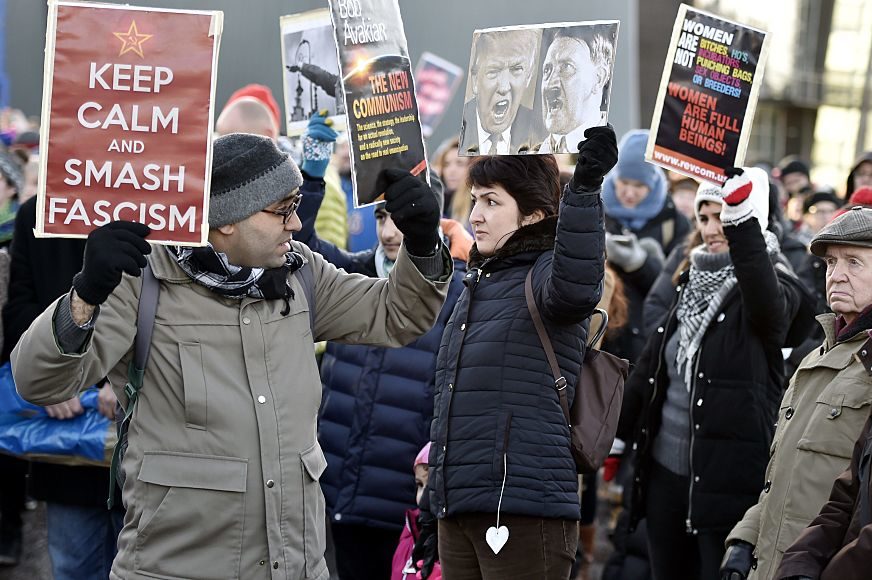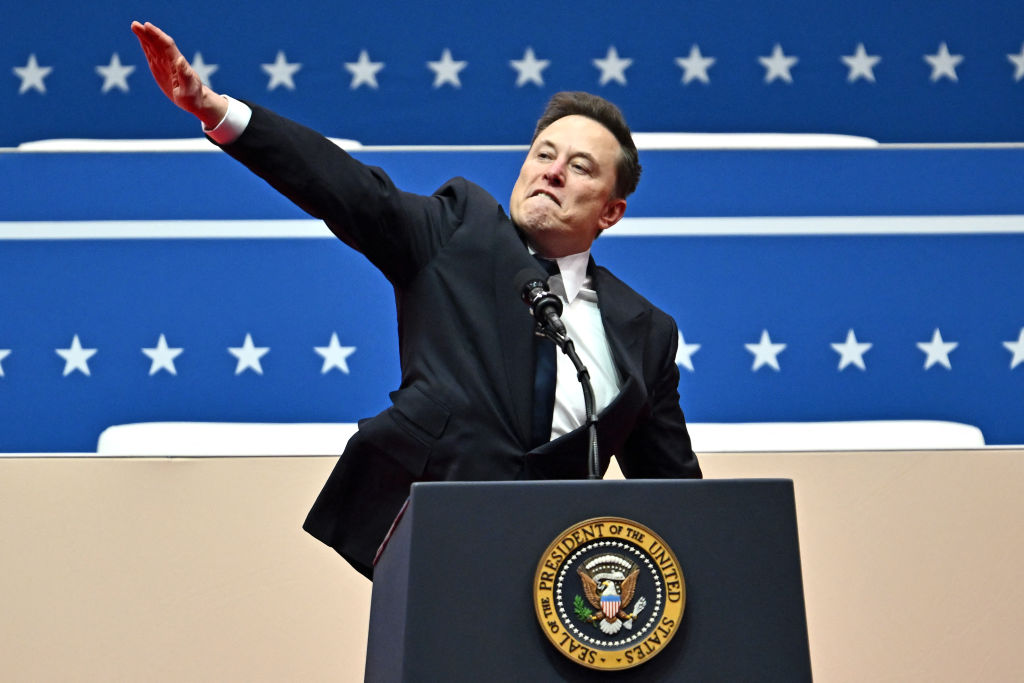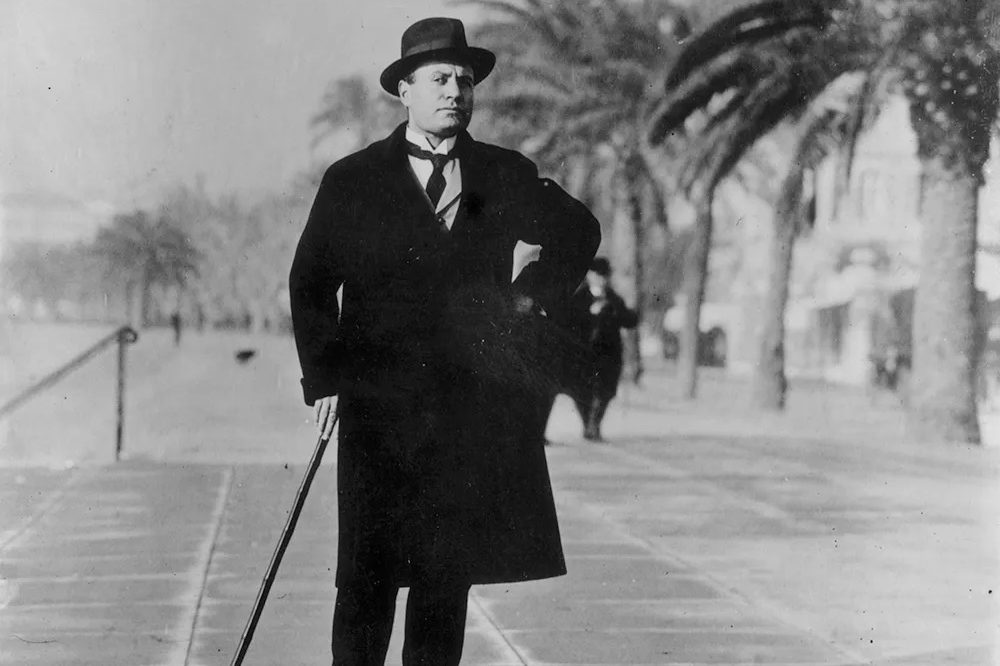A well-dressed young man walks down the Potsdamer Straße in Berlin, days before the end of March in 1933. He’s going to the Kammergericht, where he works as a civil servant in the legal system. He’s not a Nazi, never will be. His life is ordinary enough, though it’s increasingly shadowed by a sense of terror and unreality. In private he rages at his parents that month: he will emigrate, he will convert, symbolically, to Judaism. His parents treat his outbursts as youthful excitability. They caution him. Politics will calm down, as it has many times before. He — Sebastian Haffner — arrives at work.
‘I carried the heavy legal tomes to my place and surrounded myself with them. I looked up decisions of the high courts of the Reich and made notes. As always, the high-ceilinged, spacious room was filled with inaudible electricity of many minds hard at work.’
Haffner hears a noise. What is that? A door banging? Or something worse?
‘Suddenly everybody raised their heads, and strained to hear what it was. The room was still utterly quiet: but the quality of silence had changed.. The noise from outside grew stronger. Somebody spoke into the silence: “SA.” Then, not particularly loudly, somebody else said, “They’re throwing out the Jews,” and a few others laughed. At that moment this laughter alarmed me more than what was actually happening. With a start I realized there were Nazis working in this room. How strange.’
Brownshirts flood into the library. They order all ‘non-Aryans’ to leave — immediately. Haffner sits at his desk, attempting to keep his head down. A brownshirt approaches him and asks:
‘“Are you an Aryan?” Before I had a chance to think, I had said, “Yes.”… The blood shot to my face. A moment later I felt the shame, the defeat… I had not lied, I had allowed something much worse to happen… What a disgrace to buy, with a reply, the right to stay with my documents in peace!’
If you’ve followed the debate generated after Donald Trump’s remarks a week ago concerning American history, you would be forgiven for thinking that the scene Haffner describes above is about to unfold all over again. In classrooms, seminars, and staff meeting rooms across 50 states — a commotion. Elbowing their way into the schools: Boogaloo enthusiasts, Bikers for Trump, Proud Boys, militia members, all the other outriders of white supremacism, colonialism, imperialism, capitalism and sexism. Their mission: to enforce a fascist-friendly narrative of American history.
‘Trump has announced,’ wrote Arwa Mahdawi in the Guardian last week, ‘a “national commission to support patriotic education” — in other words, a racist propaganda program.’ She goes on:
‘If he gets another term there are no limits to what he might do; hello, re-education camps, goodbye reproductive rights! And that, ultimately, is what his speech on Thursday was about; it wasn’t so much about American history as it was about America’s future. It was a promise to his base that he will Make America White Again.’
Personally, whenever I read a column like this — an almost daily occurrence for five years now — I do wonder (I worry) if the author is, well, OK? Are you OK Arwa? Do you need a Xanax, maybe a diazepam?
Trump’s speech last week was presidential boilerplate, with a side of red meat for his base. He praised the Founders and the Constitution; he attacked critical race theory and the 1619 Project. There are long-standing precedents for the ‘1776 Commission’ on education that he announced. As far as I can tell — unless I am missing a form of dog-whistling so advanced that only super-duper fascist dogs can hear it — he outlined no plans for ‘re-education camps’.
(Trump, at this late stage, might say he enjoys eating cereal for breakfast. The next day there would be a 40,000-word investigation in the New Yorker about the Hitlerian origins of Froot Loops.)
Nevertheless, as soon as Trump made this speech, ‘Hitler Youth’ began trending on Twitter. So frequently does ‘Hitler’ or ‘Nazi’ trend there, that you would be forgiven for thinking that the war never ended. Hitler is still shivering in his bunker, commanding increasingly imaginary divisions; the Red Army is sweeping towards Berlin; Churchill is drinking brandy in the bathtub. Lo fascism trends: what’s happened this time, you think. Has Don Jr invaded Poland? Has Stephen Miller converted to ‘World Ice Theory’?
If Donald Trump is a fascist, then he is even more incompetent than the pathetic clowns and shifty gangsters who hawked it in Europe last time around. You don’t need to invoke fascism to criticize this president. The ineptitude, chicanery and silliness have been there all along. Naming Trump fascist-in-chief is about as rhetorically effective as naming Joe Biden — ancient middle-of-the-road corporate cornball Joe — a socialist. It appeals exclusively to sad partisans with no attachment to reality whatsoever.
[special_offer]
‘Fascism’ and ‘socialism’, I doubt I’m the first to point out, are easily the most abused terms in contemporary political debate. They roam absurdly and transhistorically through every avenue of public discourse, bringing nobody closer to understanding anything at all. I doubt there has ever been a time when fewer actual fascists and actual socialists existed than today.
Right now, the debate over American history looks like it boils down to one side saying America is the best country in the world, while the other side says it is the worst country in the world. That’s further evidence that American exceptionalism is a belief that few Americans, whatever their political allegiances, can do without.
This noisy ax-grinding is a long way from Edward Gibbon’s belief that history was little more than a register of the crimes, follies and misfortunes of mankind. If you doubt that, then consider reading Sebastian Haffner’s memoir.

























